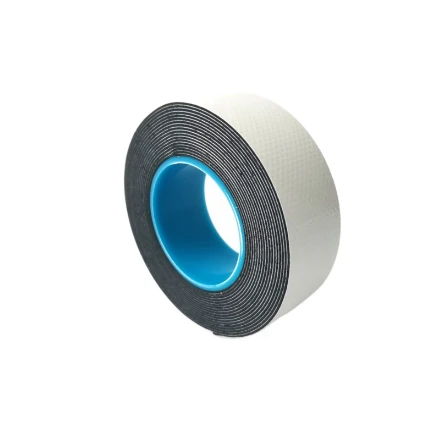Rubber Tape for Electrical Applications A Comprehensive Guide
When it comes to electrical insulation and protection, rubber tape is one of the unsung heroes of the industry. This versatile product is often overlooked in favor of more commonly known materials, such as electrical tape or heat-shrink tubing. However, rubber tape offers distinct advantages making it invaluable in numerous applications, especially in the realm of electrical work. In this article, we will explore the properties, benefits, and various applications of rubber tape, emphasizing its utility in electrical projects.
What is Rubber Tape?
Rubber tape, as the name suggests, is made from a type of synthetic rubber or natural rubber compound. This material is characterized by its high elasticity, supple texture, and impressive insulation properties. Rubber tape is typically available in various thicknesses and widths, making it suitable for a wide range of applications, from insulation and repair to protection and sealing.
Key Properties
1. Electrical Insulation One of the primary reasons rubber tape is favored in electrical applications is its excellent electrical insulating properties. It is capable of withstanding high voltages, making it ideal for use in environments where electrical conductivity must be minimized.
2. Temperature Resistance Rubber tape can perform well under a wide range of temperatures. It retains its flexibility and adhesion even at low temperatures, while also resisting degradation at higher temperatures, making it versatile for various climates.
3. Water and Chemical Resistance Rubber has natural water-resistant properties, which are enhanced when the tape is manufactured. Additionally, rubber tape exhibits decent resistance to many chemicals, oils, and solvents, providing an additional layer of protection in potentially corrosive environments.
4. Self-Fusing Capability Many rubber tapes have self-fusing properties, meaning they can bond to themselves when stretched and wrapped around an object. This feature allows for a seamless, strong, and homogenous insulating and protective layer that further enhances their effectiveness.
Benefits of Using Rubber Tape
rubber tape for electrical

2. Durability Rubber tape is not only resistant to moisture and chemicals, but it also boasts excellent abrasion resistance. This durability ensures that the tape will remain intact over time, contributing to the longevity of electrical systems.
3. Ease of Use Rubber tape is relatively simple to apply. It can be torn or cut to size and applied without the need for additional adhesive or complicated tools. The self-fusing characteristic simplifies the application process and minimizes the potential for air pockets or other insulation failures.
4. Repair and Maintenance For electrical repair work, rubber tape is a go-to solution. Whether it's covering exposed wires, repairing insulation, or sealing conduit connections, rubber tape often provides a quick, reliable solution that can be implemented in various scenarios.
Applications of Rubber Tape in Electrical Work
1. Insulation of Wires and Cables It is commonly used to wrap around electrical wires, ensuring they are insulated against accidental contact and short circuits.
2. Splice Protection When connecting different wires or cables, rubber tape can be applied to protect splices from moisture and other environmental factors.
3. Sealing Electrical Enclosures Rubber tape is excellent for sealing gaps in electrical boxes and junctions, preventing dust, moisture, and corrosive elements from potentially damaging sensitive electronics.
4. High Voltage Applications In high-voltage electrical systems, rubber tape is often used as an additional protective layer due to its ability to withstand significant electrical stress.
Conclusion
In conclusion, rubber tape is an essential tool in the electrical maintenance and repair arsenal. Its superior electrical insulation properties, flexibility, durability, and ease of application make it an ideal choice for a multitude of electrical tasks. Whether you are a professional electrician or a DIY enthusiast, understanding the benefits and applications of rubber tape can significantly enhance the quality and safety of your electrical projects. Always consider incorporating rubber tape into your electrical management practices for both permanent and temporary solutions.
-
XIANGFAN Rubber Tape-Ultimate Solutions for All Your Insulation NeedsNewsJun.24,2025
-
XIANGFAN Rubber Tape-Protection for Industrial and Residential ApplicationsNewsJun.24,2025
-
XIANGFAN Rubber Tape: Superior Safety and Sealing for Demanding EnvironmentsNewsJun.24,2025
-
XIANGFAN Rubber Tape: Reliable Solutions for Every Electrical ChallengeNewsJun.24,2025
-
XIANGFAN Electrical & Industrial Tape: Powering Reliability Across IndustriesNewsJun.24,2025
-
XIANGFAN Electrical & Industrial Tape: Excellence in Every ApplicationNewsJun.24,2025
